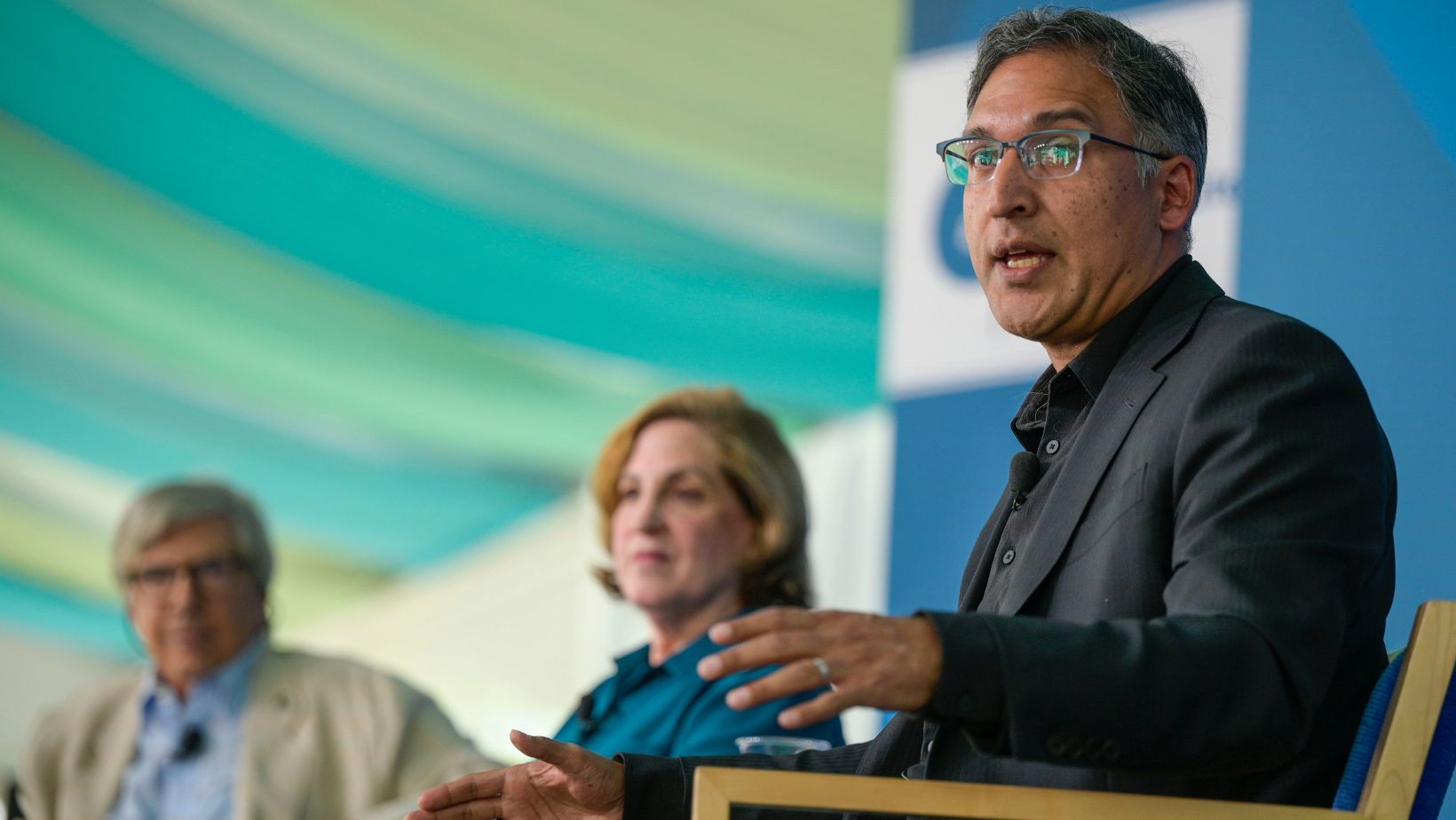[[nid:16485]]
Recently, Society of Fellows members gathered at the Aspen Meadows campus in Aspen, Colorado, for a special two-day symposium on composers Antonin Dvořák, Gustav Mahler, and the effect of their time in America on their lives and music. “Music has to be national in some sense,” said Joseph Horowitz, a noted musicologist whose work centers on classical music in the United States and author of “Classical Music in America: A History.” Renowned composer Alan Fletcher, who is also the president and CEO of the Aspen Music Festival and School, and James Loeffler, University of Virginia associate professor of Jewish and European history, with expertise in the field of Jewish music history and composition, joined Horowitz as moderators.
Dvořák had the unique ability to “become an American,” said Horowitz, despite the musician’s upbringing in the Czech Republic and having spent only three years in America. Still, Dvořák was an incredibly influential composer during the 1890’s, particularly due to his compositions that drew inspiration from Native American and African American populations. Dvořák’s focus challenged the prevalence of Eurocentric music and created a new American genre with a lasting legacy. Horowitz emphasized that Dvořák taught audiences that ‘American’ meant more than “stepping off the Mayflower,” and that American music included the rich histories of both Native American and African American people as well.
Day 1: Dvořák and the Quest for Profound Performance
Chief Conductor of the Lucerne Symphony Orchestra, James Gaffigan, joined the Symposium briefly to offer his thoughts about conducting Dvořák’s work in an orchestra and how understanding the music’s background context can create a richer experience. Gaffigan encouraged Fellows to listen with a “childlike openness” first and then listen again once learning the background story. He saw his own role as a conductor to help the orchestra unify around a piece through understanding its deeper meaning only after each member had played it once using his or her own interpretations.
Over the course of the Symposium, moderators chose different methods to engage Fellows with more context while listening to music. Multimedia presentations were among them. Fellows were asked to consider whether the Music School’s evening’s performance of Dvořák’s G Major Symphony would have been enhanced by background presentations, such as on-screen images or a PowerPoint display.
Day 2: Mahler’s Struggle with Anti-Semitism and Identity
The late-Romantic composer Mahler was discussed, with moderators drawing comparisons between him and Dvořák. Mahler was in America from 1907-1911, and Horowitz called him a “chronic outsider” in contrast to Dvořák. While the theme trended towards how the surrounding American environment and culture affected Dvořák’s music, Mahler’s music seemed to be influenced by his troubled life and identity as a musician. Raised into a minority of Jewish German-speakers in Bohemia, Mahler had a unique upbringing by the time he reached the United States.
The moderators explored the prevalence of anti-Semitism in the musical community at the turn of the 20th century and the bias against Jewish composers. Loeffler demonstrated excerpts from traditional Jewish folk songs and more contemporary pieces, so that Fellows could better understand some of Mahler’s musical influences. The composer John Milner was introduced as an example of a composer of Jewish music that Loeffler and Horowitz used in order to contrast with Mahler’s musical identity. Mahler’s was instead a reflection of his diverse experiences that could have only flourished in America. Loeffler commented that the combination of Mahler’s introspective nature and varying style was reflected in his music, which resembled “a Freudian stream of consciousness,” according to Horowitz.
Society of Fellows members learned that while both Dvořák and Mahler spent time in America they responded to this experience and were received by the public very differently. Dvořák immersed himself in American culture and history, changing the way that Americans thought about their diverse population. Mahler was an internally-focused and controversial musician whose time in America allowed him the freedom to explore a new set of sounds that was not possible in an anti-Semitic Europe.

